What Would Happen to Your Body if You Only Ate Eggs for 30 Days
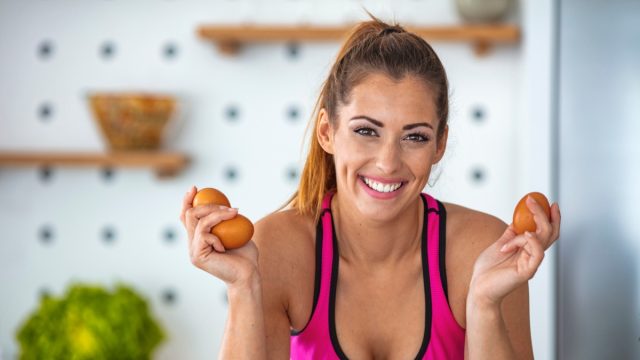
Eggs are delicious, nourishing, and versatile—and Dr. Eric Berg, DC, is a massive fan of these little superfoods. What makes eggs so unique? Aside from being relatively affordable, they are whole foods that are full of crucial nutrients for health, wellness, and fitness. "So what would happen if you just relied on eggs as your only source of protein? You would actually do much better health-wise. And that's what I want to get into in this video," he says. Here's what would happen if you switched to getting all your protein from eggs for 30 days.
Quality Protein
Eggs are a whole food and packed with nutrients. "The egg is the highest quality source of protein other than breast milk," Dr. Berg says. "It has virtually every nutrient that you need, and its amino acid profile is complete. The nutrients and amino acids are very bioavailable. The waste product from eggs is so minimal because you're utilizing all this great protein. So eggs are number one, meat is number two, dairy is three, and plant-based protein is low on the list."
Protein Benefits
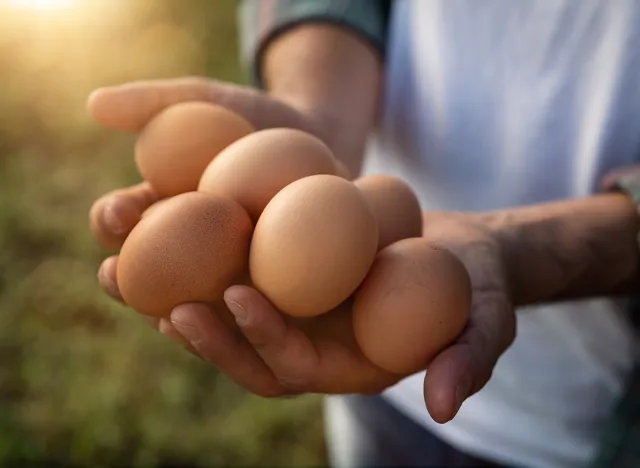
Protein impacts much more than muscle building and satiety. "Sometimes people think about proteins as just muscle, but you have all the enzymes in your body," Dr. Berg says. "The different metabolic pathways are all proteins. A good portion of your skin is protein. A good portion of your bone is protein. Your immune system is proteins. So when we're trying to replenish or repair proteins, we need sufficient proteins in a bioavailable source that our body can really use efficiently."
Bioavailable Protein
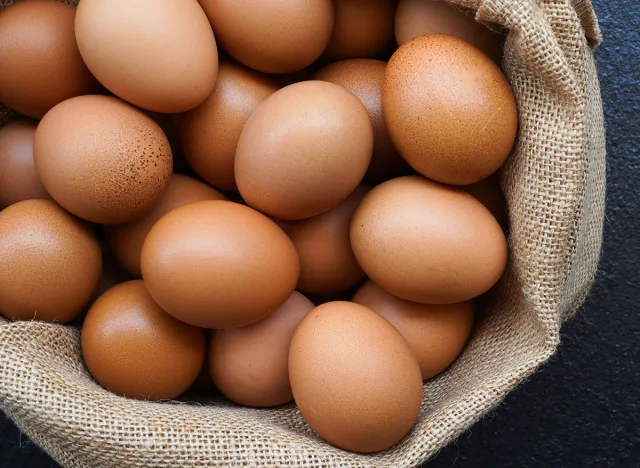
Dr. Berg says eggs are at the top of the list for bioavailable proteins. "One egg will give you seven grams of protein and virtually every single nutrient. It may not give you all the vitamin C, but it will give you the B vitamins, vitamin A, vitamin D, vitamin E, vitamin K one, and K two, omega-3 fatty acids… So this is packed full of nutrients."
RELATED: 20 Superfoods for People Over 50
Choline
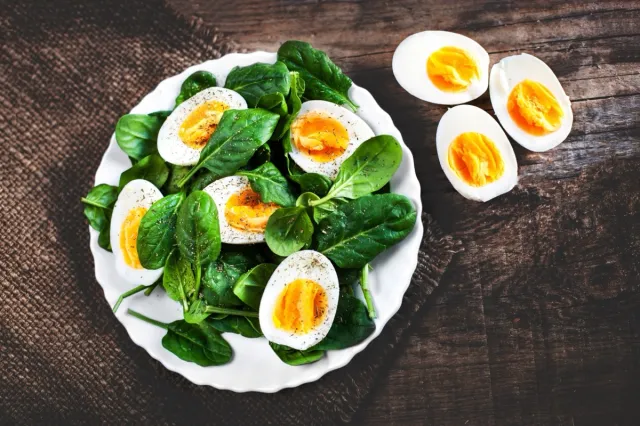
Whole eggs are one of the best sources of choline. "Choline, which is a really important nutrient that can help prevent a fatty liver," says Dr. Berg. "In fact, if you're deficient in choline, you will get a fatty liver. But choline is also necessary for a healthy brain, and choline is a really good antidote to high cholesterol."
Eggs For Eye Health
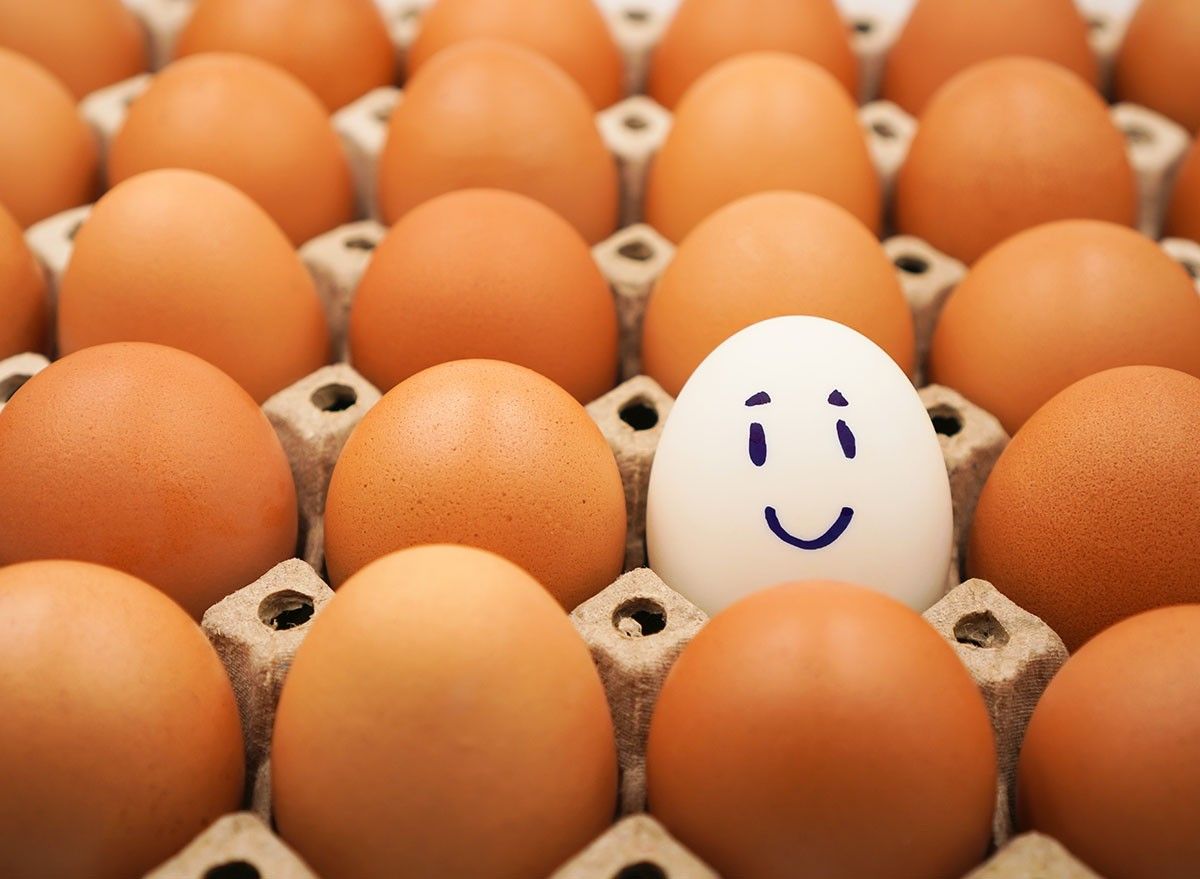
Eggs are very good for eye health. "Lutein and zeaxanthin, these are two compounds that greatly support the macula of the eye," Dr. Berg says. "There's a thing called age-related macular degeneration. And these two compounds can help prevent that condition. Then, we have something called phospholipids. What's that? It's a combination of lipids and phosphorus, which is a great anti-inflammatory. It's very important in building your cell membranes."
Eat the Whole Egg
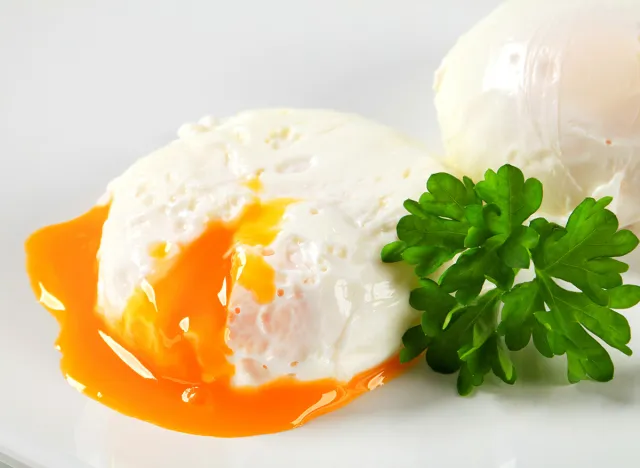
If you want to build muscle, eat the whole yolk, Dr. Berg says. "People have been confused about the egg whites and the yolk. They think that all the protein is in the egg whites, but did you realize that if we compare per hundred grams of the yolk versus the white, the yolk has 16.4 grams of protein per hundred grams, and the white only has 10.8 grams of protein per hundred grams. So, per weight, the yolk has more protein. Not to mention, it has so many other things that are essential for repair and even preventing something called sarcopenia, which is an age-related muscle loss condition."
RELATED: Lose 10 Pounds in 30 Days Over 50 on Simple Animal Protein and Fruit Diet
Cook Your Eggs
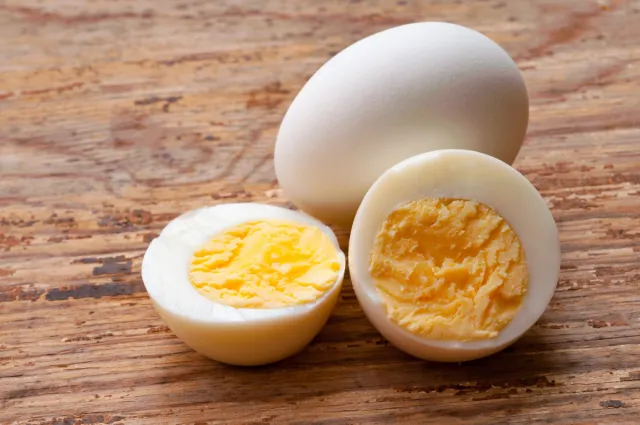
Dr. Berg says to be mindful of raw egg consumption. "The problem with raw eggs—and I'm not against it in certain amounts—but raw eggs have a protease inhibitor. That means that the enzyme that helps break down protein is inhibited. So you may not get the full benefit of that egg white. Not to mention you may develop a biotin deficiency if you have a large amount. And so this compound is kind of nullified when you heat the egg when you cook the egg."
Take It Over-Easy
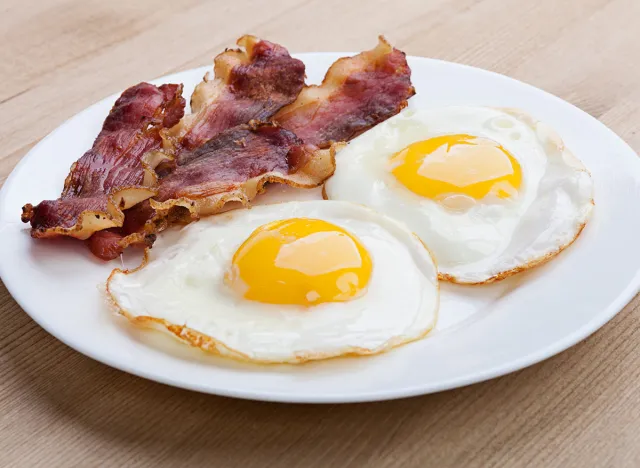
Dr. Berg loves a runny yolk. "The best form of an egg I would recommend is something like an over-easy egg where the egg yolk is runny, but you're cooking the white part," he says. "But even if you scramble your egg, or you hard boil your egg, you're still gaining a lot of benefits. So I don't want to get too far in the woods with the cooking methods of an egg, but I will say that at this point, realize that eggs, in general, are super, super healthy, especially if you wanna get a high-quality source of amino acids."
Mix it Up
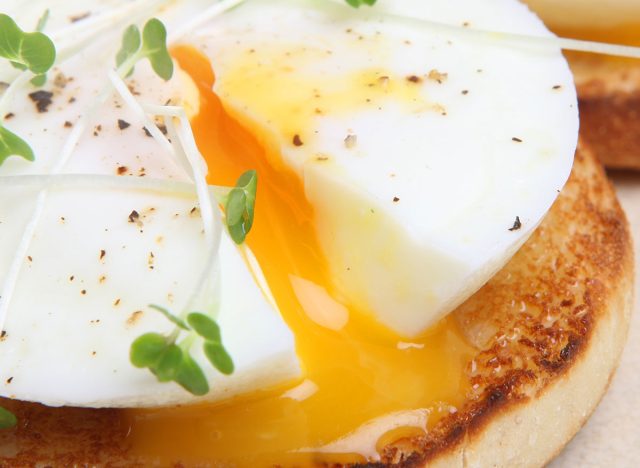
Try different recipes to avoid getting bored with eggs. "The only drawback I see that it has is nothing related to health," Dr. Berg says. "It has to do with maybe boredom and making your foods more interesting by adding different protein sources. But if you were to just to consume eggs as your primary protein source, you would not only increase your health, but you would probably increase your digestion as well because eggs seem to be very easily digested for most people unless you have an allergy."
RELATED: 4 Meals I Ate to Lose 30 Pounds in 12 Weeks
Can I Eat Eggs Every Day?
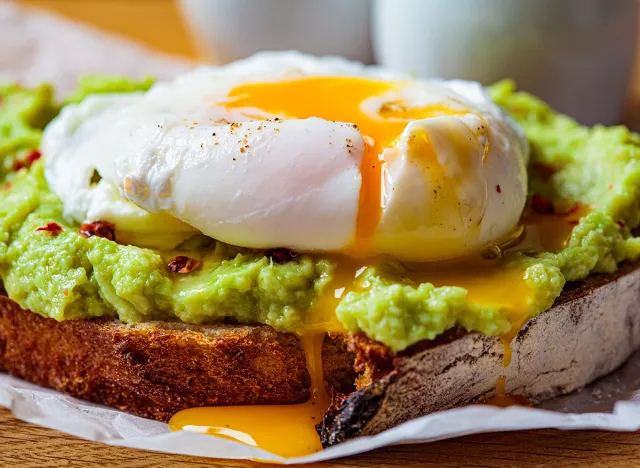
The official guidelines on eggs have changed over the years. "The urban myth out there is that eggs are bad for your heart. It's not a total myth, but we've known that guidelines for healthy eating took out previous advice to limit dietary cholesterol because it really didn't make a big difference in overall cholesterol. The cholesterol is in the egg yolk," Dr. James O'Keefe, Professor of Medicine at the University of Missouri-Kansas City and cardiologist at Saint Luke's Mid-America Heart Institute, tells ABC News. "As we get older, we need higher amounts of protein to maintain muscle mass. Muscle mass and physical strength are two predictors of healthy aging. It's important to maintain and build muscle mass in middle age and beyond. Eggs are an inexpensive, widely available source of protein." Always talk to your doctor before starting any new diet regimen! And if you enjoyed this article, take advantage of these 15 Quick Ways to Lose Body Fat Percentage in a Week.




